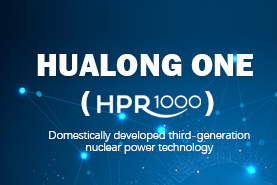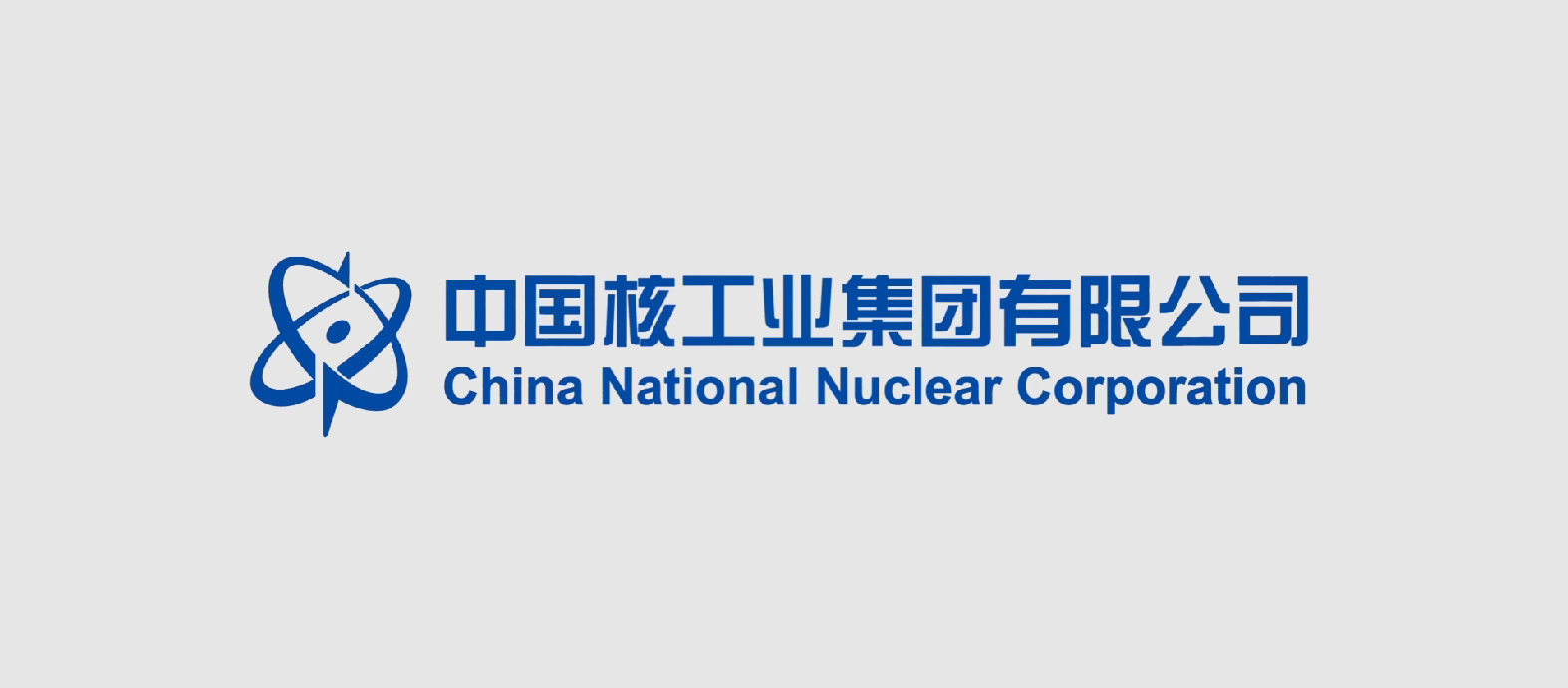Nuclear sector forges ahead
China National Nuclear Corporation (CNNC), one of the country's largest nuclear companies, supports the development of China's nuclear industry with independently developed technologies.
Founded 61 years ago, the company has become the official body for China's nuclear science and technology industry, and has accumulated rich experience in scientific research, design and production.
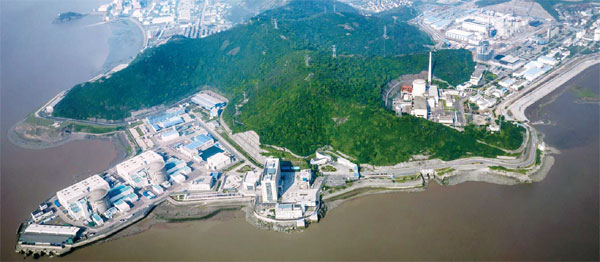
CNNC's Qinshan nuclear power plant, China's first such plant, is still the biggest in terms of number of units and variety of reactors. It is located in Haiyan county, Jiaxing, in Zhejiang province. [Photos provided to China Daily]
It has established a full industry chain for nuclear research, nuclear power, nuclear power generation, nuclear fuel production and the design of nuclear systems.
The company has strong research and innovation capabilities over the full nuclear fuel cycle, including uranium exploitation, conversion, purification, enrichment, and nuclear fuel production at the front end and spent fuel treatment and radioactive waste disposal at the back end.
It is also capable of providing a variety of nuclear-related services, such as nuclear power plant design, development and operation.
China is one of few countries in the world with complete integration of every facet of nuclear energy's technological and industrial systems.
Leading role
President Xi Jinping has stressed on several occasions, including the Central Economic Work Conference in Beijing in 2013, that the export of nuclear power technology should play a leading role in helping China establish new competitive advantages in global markets.
During his recent state visits, Xi promoted China's nuclear power technologies and encouraged the nuclear industry to "go global".
CNNC is the only nuclear company in China to have exported nuclear power plants to foreign countries: seven nuclear power units and eight reactors in seven countries.
CNNC has established technological and trade cooperation with over 40 countries and regions and continues to push forward cooperation with around 20 countries and regions in fields such as nuclear power, uranium resources, nuclear fuel and application of nuclear technologies.
Hualong One
CNNC accelerated its "go global" strategy in the 12th Five-Year Plan (2011-15) period with independently developed nuclear technologies named Hualong One.
Hualong One, the third generation of pressurized water reactor developed by CNNC, passed expert review in August 2014, according to Xinhua News Agency.
A demonstration project for Hualong One was launched in Fuqing, Fujian province, in May 2015.
In August 2015, the first overseas project to use Hualong One technology debuted in Pakistan.
The two projects mark the beginning of China's third-generation reactor technology being put into use and obtaining international recognition.
Hualong One technology has attracted the attention of many state leaders.
During the Africa Equipment Manufacturing Industry Expo in December last year, President Xi introduced Hualong One technology to South African President Jacob Zuma.
"This is our independently developed technology, we will introduce it to Africa and the rest of the world," Xi told Zuma.
Premier Li Keqiang said during his visit to CNNC in June 2015: "You provide me with strong support, and I will promote your reputation on the world stage. To raise Chinese nuclear power equipment's competitiveness in global markets, the highest standards, best quality and highest cost performance should be achieved."
President Xi and former Argentine president Cristina Fernandez de Kirchner witnessed the signing of an agreement in February last year to export a Hualong One reactor to Argentina. It was the first time China had agreed to export nuclear power technology to Latin America.
CNNC signed a commercial framework contract with Nucleoelectrica, Argentina's state-owned nuclear operator, in November 2015, to export China's homegrown pressurized-water reactor technology to the country.
CNNC and Nucleoelectrica are in close contact to push forward the construction of the Hualong One project, according to CNNC.
Meanwhile, CNNC are also in talks with counterparts in the United Kingdom, Sudan, Brazil, Egypt, Ghana and Malaysia.
Aiming to strengthen Hualong One's global competitiveness, CNNC has analyzed the global market and become the industry standard in nuclear technology.
CNNC decision-makers believe that nuclear energy is not simply a source of energy, but also an accurate representation of a country's capacity for comprehensive development.
Official figures show that about 40 countries along the Belt and Road have their own plans to develop nuclear power, providing huge business opportunities for CNNC.
CNNC estimates that 1 trillion yuan ($150 billion) in production output value could be generated if it could obtain a 20-percent market share in countries along the Belt and Road. That means as many as 30 nuclear power units, the company said.
In addition to that direct economic benefit, nuclear exports to Belt and Road Initiative countries will create five million jobs, generate 3 trillion yuan of revenue in the full life cycle and strongly support related industries such as equipment manufacturing, nuclear fuel supply and training, CNNC said.
CNNC's development
CNNC reported significant growth in revenue and net profits during the 12th Five-Year Plan (2011-15) period. The value of its total assets reached 450 billion yuan by the end of 2015, almost double the figure from 2010.
CNNC's core competitiveness lies with its nuclear power business. In the past five years, the corporation strengthened its capacities in development of nuclear power plant models, nuclear fuel, nuclear chemical techniques, waste treatment, nuclear power plant project design and construction, and exports of nuclear power plant and nuclear technologies.
CNNC was the first domestic nuclear business listed on the Shanghai Stock Exchange. The company has obtained construction approval for six nuclear power units, has started construction of six nuclear power units and put six others into operation during the 12th Five-Year Plan.
CNNC has maintained high standards in ensuring nuclear safety and reliability. The performance of its plants meets benchmarks established by the World Association of Nuclear Operators (WANO).
Some technique indicators are much better than required by WANO.
CNNC is operating 14 nuclear power plants in China with a total installed capacity of 11.51 million kilowatts. Currently, it is building 11 nuclear power units and is expected to add 12.11 million kW installed capacity to its business.
CNNC is listed among the first-tier group of companies in the world's nuclear fuel industry.
CNNC's nuclear fuel business unit reported 14.5 percent average annual increase in asset value in the past five years.
CNNC is a major force in uranium prospecting and a dedicated supplier of natural uranium products in China. The company has established a uranium prospecting system that is capable of conducting remote space sensing, airborne and ground geophysical prospecting and deep-hole exploration.
CNNC achieved a record drilling depth of 2,818.88 meters in uranium mining in 2013, greatly advancing the country's uranium prospecting capability.
The company has established six resources bases in China, including Erdos Basin.
During the 12th Five-Year Plan, CNNC obtained exploration approval for 50 uranium mines and was granted eight mining licenses.
CNNC also launched projects in Niger, Namibia, Zimbabwe and Mongolia.
China Isotope & Radiation Co, owned by CNNC, is a professional company in nuclear technology application in China. It has a more than 70 percent share of China's medical isotope market.
China CNNC Baoyuan Property Holding Corporation is a service-driven unit that supports innovation in CNNC's business models.
The subsidiary of CNNC has reported breakthroughs in sectors such as medical services, property management and trading services.
CNNC's new energy platform is the only platform within CNNC that develops industries outside the nuclear industry. This business unit focuses on the construction and operation of wind power and solar power projects.
CNNC Rich Energy Corporation, the new energy subsidiary of CNNC, is capable of producing 1 million kW power an hour, and a storage capcacity of 3 million kW.
Nuclear safety is considered the most important element in the development of China's nuclear industry.
Therefore, the safety consideration is given priority in all CNNC's operations.
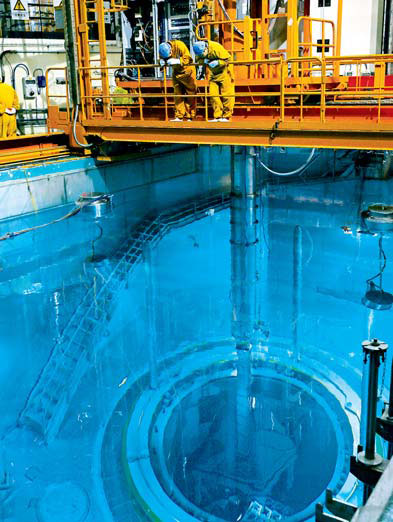
CNNC's independently developed nuclear fuel component CF3 is tested inside reactors at the Qinshan nuclear power plant.
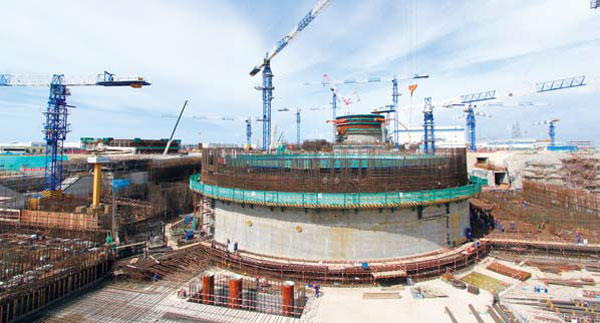
Hualong One's global demonstration project is located at the Fuqing Nuclear Power Plant in Fujian province, with two Hualong One units under construction and progressing well.
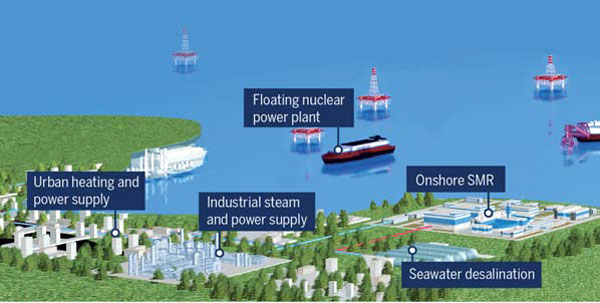
The various functions of CNNC's independently developed multi-purpose small modular reactor, or ACP100.

